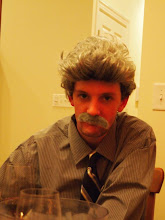Larry Summers

I feel a little silly posting this here because, first of all, it is from the University of Chicago perspective, but also because two days after this was published the U of C announced who its new president was (it was not Larry Summers).
Oh well. I still think my column makes a strong point about the role of University presidents today, and I do think Larry Summers would make a fantastic president somewhere else (or at Harvard again).
Many U of C students loath Harvard. It is consistently ranked as one of the top colleges in the nation and universities in the world. It attracts some of the brightest faculty and students. Its endowment is nearly as large as Yale and Stanford’s combined.-Mr. Alec
But the past year has shown that there is trouble in paradise. Harvard has serious problems—some not unique to Harvard at all. Harvard was graduating entire classes with honors because of rampant grade inflation. Its top-notch professors weren’t teaching. Some weren’t even taking time from their busy schedule of speaking engagements to research or write academic papers. Its undergraduate curriculum was a mess, giving broad distributional credits for undeniably lame classes.
When Larry Summers became president of Harvard, he made it his goal to address these problems. But in his attempt at making the role of a university president more than chief fundraiser he became too much of a threat to the Faculty of Arts and Sciences’ (FAS) power.
The straw that broke the camel’s back came when Summers edged out the dean of the FAS who was stalling on the necessary curriculum changes. This prompted the FAS to force a second vote of no confidence which could have proven fatal for his presidency. In order to avoid embarrassment, Summers stepped down.
The sad thing throughout this whole ordeal is that Summers has been played as some tactless brute who was just not cut out for the job. Summers’s comments regarding women in science were those of a curious academic—the type of person that ought to be running universities. The dean of the FAS that Summers forced out was roundly disliked until he was fired. The FAS placed him on a pedestal when it realized it could use the event as a way to force a second vote of no confidence.
Perhaps the biggest vote of confidence in Summers—the manager, academic, and reformer—was the fact that he was well regarded by everyone but the FAS. The students, by an overwhelming majority, loved him. He taught freshman seminars and lecture courses. The faculty of the professional schools adored him. And why shouldn’t they, he was making the university a better place for them.
To blame the resignation on any aspect of Summers’s personality is to completely miss the point. In his attempts at reform, he upset the almighty and entirely unaccountable tenured professors of Arts and Sciences. Many did not want the president determining their dean, urging them to do research, or calling them out on their failure to teach. He was forced out because he tried to force reform on a group of tenured professors who wanted none of it.
But Summers’s experience is becoming the norm. Presidents are either frustrated reformers or fundraising figureheads. Not that President Randel is neccesarily one or the other, but it is sad that every press release detailing his success at the U of C focuses on the amount of money he has raised. Whatever happened to university presidents as intellectual lions, like Ezra Cornell, William Rainey Harper, or Robert Maynard Hutchins? Today it seems that too often university presidents choose the path of least resistance. Larry Summers attempted to break that mold, to bring Harvard into the next century; all he got was disgrace and embarrassment.
In the coming months the U of C will be announcing its next president. While we are not a perfect university, we don’t have nearly the same structural problems as Harvard. But still, it doesn’t seem to be asking too much for a president who is willing to do what is necessary to make the curricular reforms the U of C needs, take on lazy and stagnant faculty, and fearlessly make academic inquiry.
Larry Summers anyone?
PS If you are a U of C student, you should check out this great post by Crescat Sententia's Will Baude about U of C and Harvard animosity. I have to say though, that I don't share his sentiment for Harvard (although there have been times when I have felt bitter about not being at Yale or Stanford--especially during winter quarter--but that always melts away when I realize that I'd be a huge tool--as opposed to a huge geek--if I went to either school).
-Mr. Alec




0 Comments:
Post a Comment
<< Home